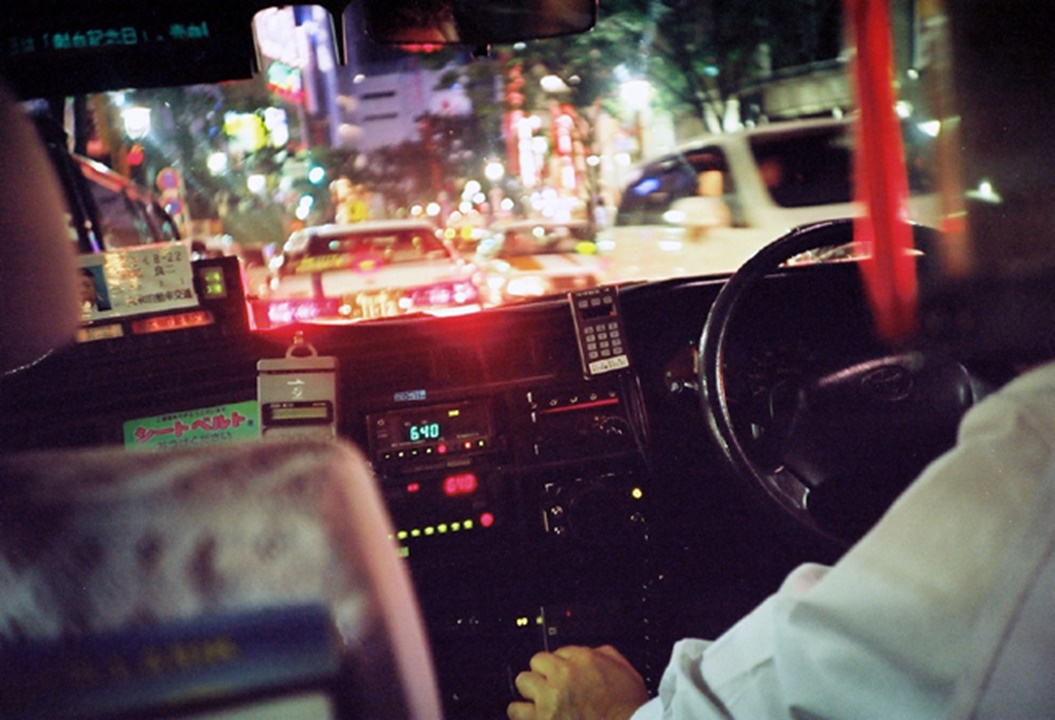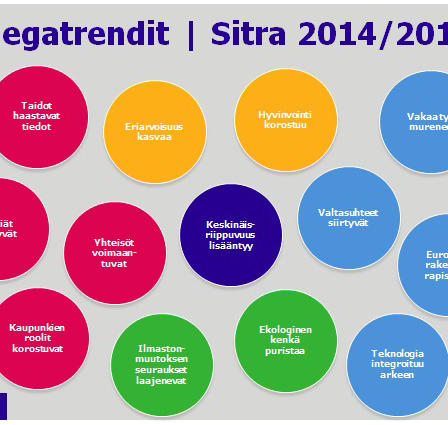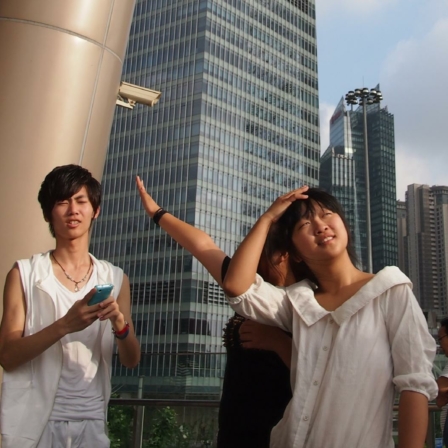These are challenging times for professional advisers engaged in monitoring global change locally in Finland and at international level. While the global balance of power is shifting and creating new opportunities, we are at risk of going back into our shells due to developments closer to home. While attempts are being made to restore the competitiveness of Finland and Europe and to return the latter to active membership of the global community, the threat to security presented by a Russia – which seems to be harking back to the 1950s – is making the headlines.
Finland, which should be hurtling down the path of renewal towards a sustainable future, must now stop and turn inwards in its search for security.
A year ago, I wrote about the observations of US-based Amitav Acharyan on how our global world increasingly resembles a multiplex movie theatre in which very different movies are being shown at the same global hour. Parallel and overlapping plots from various genres and directors are running 24/7, based on a mixture of dramatic settings, scripts and realities.
The nature of this overlap becomes clear if we compare the contemporary B-movie being directed by Russia to the futuristic spectacle produced by China.
Whereas the Kremlin is flying its 1950s Tupolev Tu-95 long-range nuclear missile carriers – those phantoms from the past – over the Baltic Sea, the borders of Alaska and the North Sea, Beijing has been busy founding the AIIB (the Asian Infrastructure Investment Bank) in order to fund infrastructure development projects in Asia. Focus areas for investment include energy, transport, telecommunications, water supply and environmental protection. (The AIIB quickly attracted 40 countries, including Finland, as founding members.)
Whereas Russia’s future is overshadowed by its lack of economic competitiveness, dysfunctional social model and desire to return to the power politics of the Cold War era, President Xi’s vision for the future of China is the “Belt and Road” scenario – the building of a new global Silk Road Economic Belt and a 21st-century Maritime Silk Road.
China’s vision for this geographically ambitious initiative is to have routes running through the continents of Asia, Africa and Europe, and traversing the surrounding sea areas. Major cities and metropolises will form nodes on the Silk Road routes. Russia’s current political vision is based on rebuilding a Cold War era wall between West and East.
Incidentally, in his keynote speech at the BFA Annual Conference in Boao, Hainan, in March, Chinese President Xi estimated that the “Belt and Road” vision has the potential to generate 2.5 trillion US dollars’ worth of trade over the next decade.
How should we describe this era and view global change from a contemporary perspective? As Acharyan said, we are living in the midst of global “messy multilateralism”.
Following the publication of my report Asia challenges us to reinvent the Western state and democratic model (in Finnish) by Sitra in February, in various e-mail discussions and on Facebook I have found myself having to state that no, I am not proposing the establishment of an authoritarian, political or Chinese social model in Finland. I still believe that the Nordic democratic model is the best and most functional option on offer. I have also had to provide grounds for not condemning China and criticising its communist and repressive system.
My message is that the rise to prominence of Asia and China’s “Belt and Road” initiatives have sparked off a new type of global race which challenges the way in which Western states and societies operate and that questions our idea of how our democratic systems should function. On the one hand, we need to take immediate action, but we also need to look to the future.
The East has forced us to confront two imperatives at once: that of building sustainable well-being and securing a just society despite current threats, and how to reform and strengthen our democratic system to improve our global competitiveness and discover our role in the story of a rising Asia.
We need to do all of these while continuing to cherish our values.



Recommended